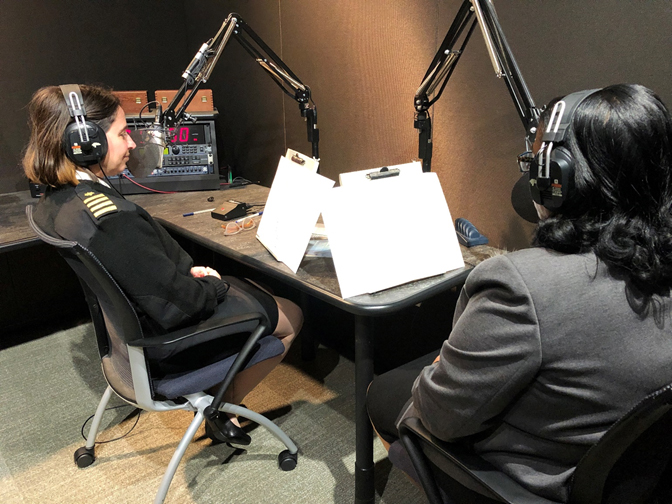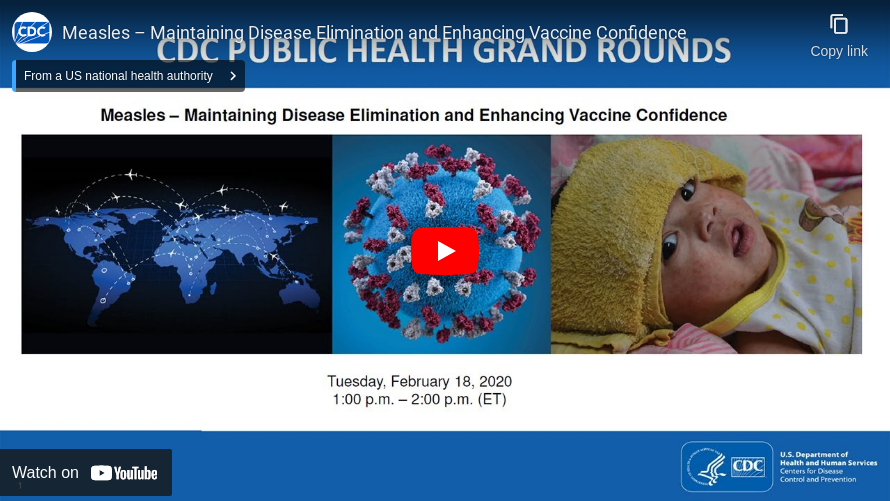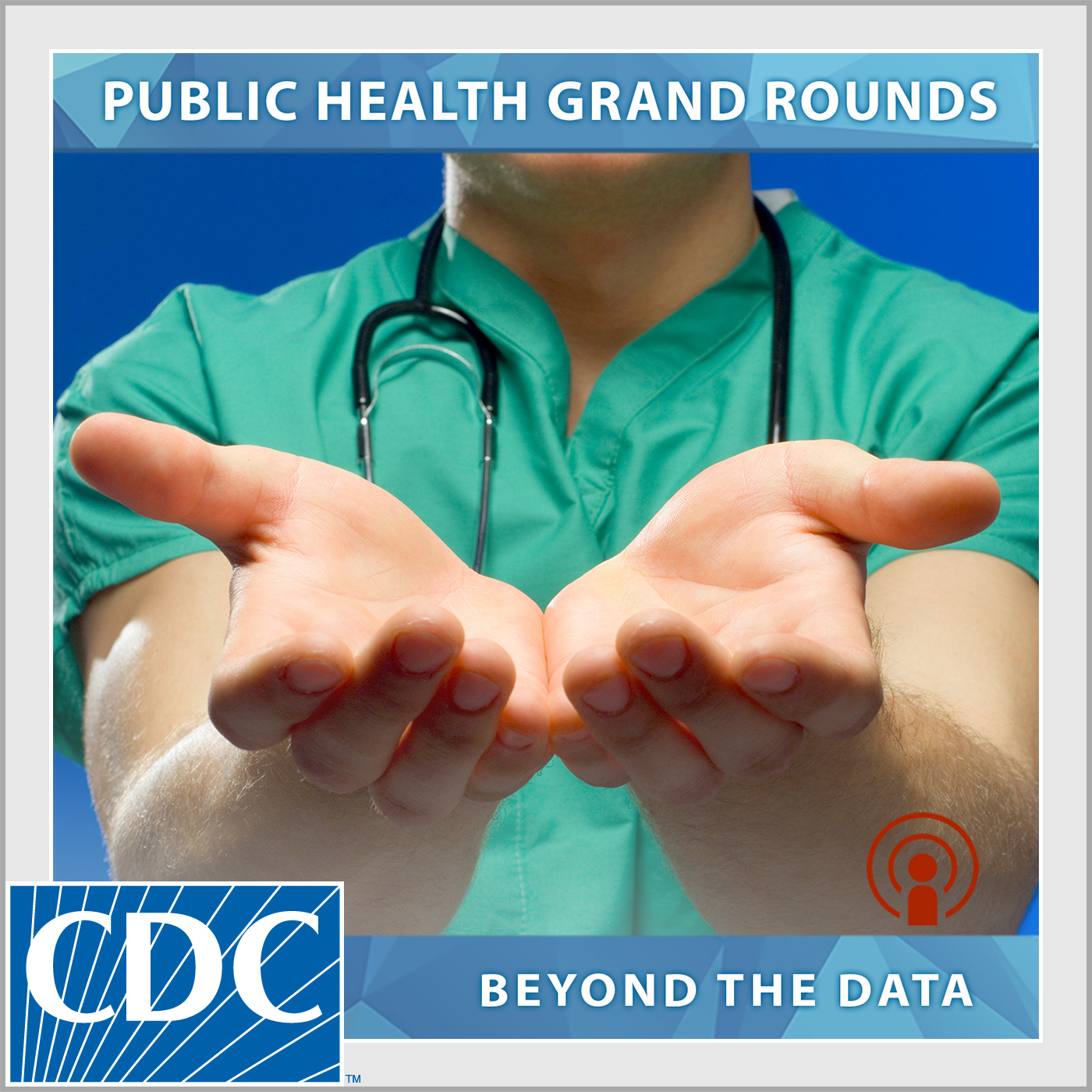Measles – Maintaining Disease Elimination and Enhancing Vaccine Confidence
Presented on .
The February session of Grand Rounds, “Measles – Maintaining Disease Elimination and Enhancing Vaccine Confidence” was viewed in 13 foreign countries, 47 states, the District of Columbia, and the US Virgin Islands.
Last year marked the highest number of measles cases in a single year in the United States since 1992, with a total of 1,282 confirmed cases. More than 73% of these cases were linked to outbreaks in New York, affecting under-vaccinated communities. Measles was declared eliminated in the United States in 2000; however, the sustained transmission of almost 12 months nearly led to the loss of our elimination status.
This session of Public Health Grand Rounds will focus on measles in the United States and the response to and lessons learned from the outbreaks in New York in 2018-2019. Presenters from New York City and New York State will share details about their outbreaks and response efforts. Presenters from CDC will discuss the national picture of measles in the United States and the agency’s strategy for strengthening vaccine confidence and increasing coverage of vaccine-preventable diseases.

Last year marked the highest number of measles cases in a single year in the United States since 1992. Doctors Tanya LeBlanc and Amanda Cohn discuss the outbreak, lessons learned, and efforts by CDC and public health officials to address vaccine myths and misinformation.
Is there any risk of the measles virus spreading from a freshly vaccinated child to a parent with an immunodeficiency?
No. There has been no evidence transmission from measles vaccine virus. You should talk with your doctor about any questions you have about the MMR vaccine.
What does it mean to be considered as vaccinated?
You are vaccinated against measles if you have followed the CDC recommendations.
- CDC recommends a specific schedule for children 12 months and older.
- Children should receive their first dose of MMR between 12-15 months of age, and their second dose between 4 and 6 years of age. The second dose can be given at an earlier age, provided it is 28 days after the first dose.
- Most adults only need one dose, if they have no evidence of immunity. High risk adults such as healthcare personnel and post-high school students need two doses.
- Children and adults traveling internationally may need earlier or additional doses.
- International travelers above 12 months should have two doses separated by at least 28 days.
- Infants between 6-11 months of age can receive 1 dose of MMR vaccine. They should follow the recommended schedule and get another dose at 12-15 months and a final dose at 4-6 years.
- Manisha Patel, MD, MS (CDR, USPHS)
- Medical Officer, Domestic Measles Team Lead
National Center for Immunization and Respiratory Diseases, CDC
"Measles in the United States"
- Howard Zucker, MD, JD
- New York State Health Commissioner
"The 2018-2019 Measles Epidemic in New York: Successes and Challenges"
- Oxiris Barbot, MD
- Commissioner of Health
New York City Department of Health and Mental Hygiene
"The New York City Experience: Measles Outbreak Management"
- Amanda Cohn, MD, (CAPT, USPHS)
- Chief Medical Officer
National Center for Immunization and Respiratory Diseases, CDC
"Strengthening Confidence in Vaccines"
Get notified about the latest updates from Public Health Grand Rounds right in your inbox by setting up an alert today!
Get notified about the latest updates from Public Health Grand Rounds right in your inbox by setting up an alert today!Sign Up
Get notified about the latest updates from Public Health Grand Rounds right in your inbox by setting up an alert today!
This session is available for Continuing Education (CE). Register here using the course information below.
CDC Course Code: PHGR10
CPE UAN: JA4008229-0000-20-078-H04-P
For more information, see Grand Rounds Continuing Education.


